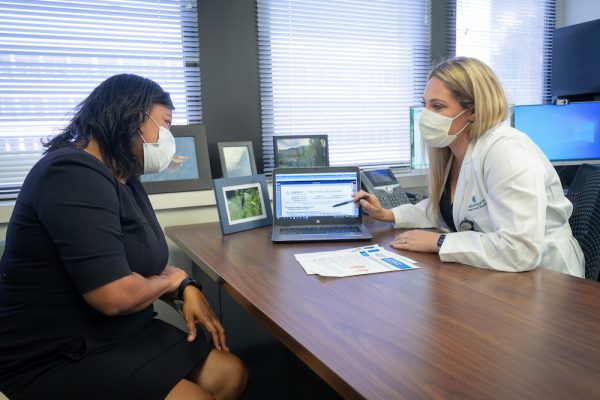Share this article

This story was originally published by Atrium Health Wake Forest Baptist.
With physicians and patients looking for ways to extend health care beyond the traditional doctor’s office, remote monitoring and care coordination can provide increased support to patients who suffer a major health event such as a stroke.
To address this growing need, clinical researchers and bioinformatic experts at Wake Forest University School of Medicine and stroke experts at Atrium Health Wake Forest Baptist’s Comprehensive Stroke Center, have created COMPASS-CP, a digital health platform that can be embedded within electronic health records. This platform brings together health care providers and patients to improve health outcomes and avoid unnecessary costs.
COMPASS-CP (COMprehensive Post-Acute Stroke Services – Care Plan) uses health informatics algorithms to combine social and functional determinants of health with clinical, demographic and medication data to create personalized, evidence-based comprehensive care plans. The plans include links to available community based resources to support health management. Remote patient monitoring such as blood pressure devices and virtual care management programs can be integrated back into the COMPASS-CP platform, which facilitates efficient care management for clinicians.
The platform was created based on insight gained from the COMPASS study, led by Wake Forest University School of Medicine and The University of North Carolina and conducted in 40 hospitals and with community partners across North Carolina. The study was funded through a $14 million, five-year award from the Patient-Centered Outcomes Research Institute (PCORI), an independent, nonprofit research funding organization authorized by Congress in 2010.
COMPASS compared the health status of stroke patients who receive conventional post-hospitalization treatment to that of patients who receive comprehensive care based on a model developed by a team of physicians, nurses, therapists, pharmacists, health system and human services leaders, and patient and caregiver stakeholders.
“This is a great example of how our academic learning health system can take research findings and develop solutions to help improve the health of patients right here at home and across the country,” said Pamela Duncan, Ph.D, professor of neurology at Wake Forest University School of Medicine and principal investigator of the COMPASS study.
Wake Forest Innovations helped create a startup company, Care Directions, Inc., to make COMPASS-CP available to other hospitals and health systems across the country. The goal is to decrease the number of secondary events (1 in 4 stroke survivors suffer a second stroke, which is often preventable) and reduce unnecessary costs.
Funding to help turn COMPASS-CP into a market-ready product was provided by the Catalyst Fund, a Wake Forest Baptist program that accelerates the development of innovative life science technologies like medical devices, drugs, vaccines, restorative medicines, diagnostics and digital health.